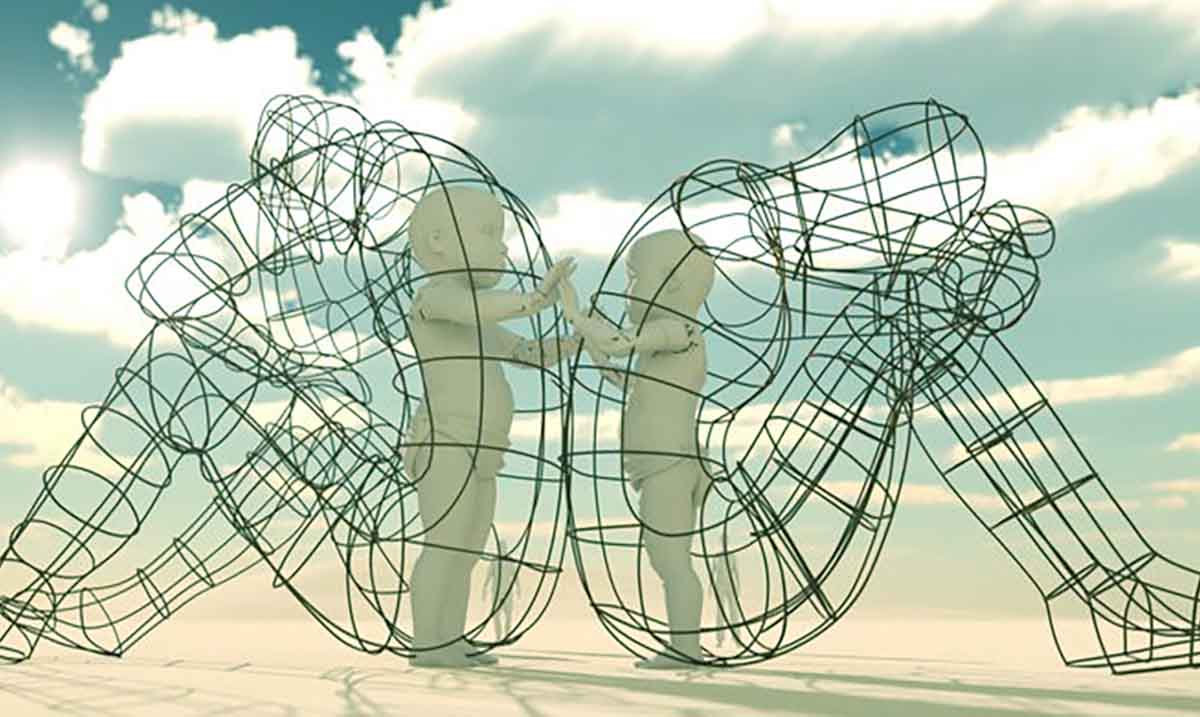We have often heard the reference to our inner child, that young, exciting inner voice so full of love and energy. Sometimes described as an ‘inner voice’ or just a feeling, your inner child embodies the childhood innocence, freedom, peace and joy that were felt throughout childhood, still present, but hidden, in our adult selves. True balance and spiritual/mental health can only be found in uniting your inner child with your adult self, creating a genuine connection that spans across both aspects of your existence.
True balance and spiritual/mental health can only be found in uniting your inner child with your adult self, creating a genuine connection that spans across both aspects of your existence.
Stephen A. Diamond Ph.D., a licensed clinical and forensic psychologist explained the importance of the inner child, saying: “The fact is that the majority of so-called adults are not truly adults at all. We all get older. Anyone, with a little luck, can do that. But, psychologically speaking, this is not adulthood. True adulthood hinges on acknowledging, accepting, and taking responsibility for loving and parenting one’s own inner child.”
The existence of the inner child, then, isn’t the concern. We all have one, whether we choose to acknowledge it or not. The problem arises when we fail to love and take care of our inner child in our daily lives. According to Diamond, this is a fairly common problem, as he goes on to say: “For most adults, this never happens. Instead, their inner child has been denied, neglected, disparaged, abandoned or rejected. We are told by society to ‘grow up,’ putting childish things aside. To become adults, we’ve been taught that our inner child – representing our child-like capacity for innocence, wonder, awe, joy, sensitivity, and playfulness – must be stifled, quarantined or even killed.”
Every choice and decision that we make in our lives are, in some way, influenced by our inner child. It is the part of our existence that feels the deep emotions of our heart. It houses our dreams, goals, and desires, viewing the world as a wealth of endless opportunity. When our inner child is properly cared for, it will leave us feeling accepted, safe, confident and empowered.
How do we know if we are failing in these efforts? Here are 6 signs that you are neglecting your inner child:
-
Forgetting the Basics
Before even starting to assess how you are doing at providing the more in-depth love, care and respect that your inner child requires, you must first ensure that the very basics are being taken care of. This means focusing on your own physical health – providing yourself with adequate hydration, proper meals and plenty of sleep. Remember that self-love is, in turn, love of your inner child.
-
Discarding Our Own Feelings for That of Others
This one can be incredibly difficult for empaths or those that are highly sensitive. Often we find that we are more concerned with the feelings of those around us than our own, choosing to stay silent when something bothers us for fear of upsetting someone else. This, however, shows your inner child that it can’t trust you to understand the importance of your own feelings, it’s feelings. It is important that you find a way to own your own feelings while also accepting that they may not be shared by everyone else in your life.
-
Criticizing or Judging Our Choices and Actions
Your inner child longs for safety, security, love, and acceptance. While we will all make mistakes, or make choices that may not have been in our best interest, your inner child longs to be accepted mistakes and all, without fear of judgment.
-
Remaining in Negative or Toxic Situations
When we find ourselves facing a toxic situation, our inner child tries to warn us with feelings of fear and discontent. Ignoring these feelings and remaining in the toxic situation conveys the message to your inner child that you are ignoring its warnings, or undervaluing its opinion. It leaves it feeling unworthy and void of trust.
-
Judging Painful or Negative Emotions
Similar to the judgment referenced in point #2, when we allow yourself to judge your own negative or painful emotions or reactions to things that happen in life, you are destroying the connection that you have developed with your inner child. It now begins to see any type of negative emotion as something that is inappropriate and should be hidden away to avoid being judged. This lack of a ‘safe space’ is not conducive to fostering a healthy inner child.
-
Explaining Away the Emotions of Your Inner Child
When something happens in our life, such as a missed job promotion or an argument with a friend, we are almost instantly hit with an emotional reaction – sadness, disappointment, anger. Most of us will then try to explain these feelings away with phrases like ‘everything happens for a reason’ but the truth is that the emotion is the reaction of our inner child, and it needs to be given the opportunity to sit with its emotions and genuinely feel them before being forced to move on.
